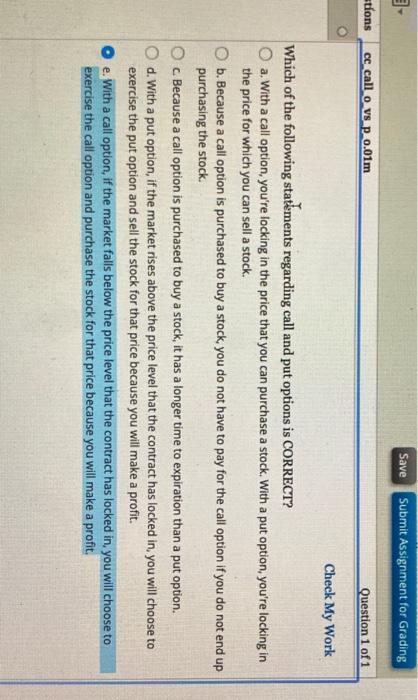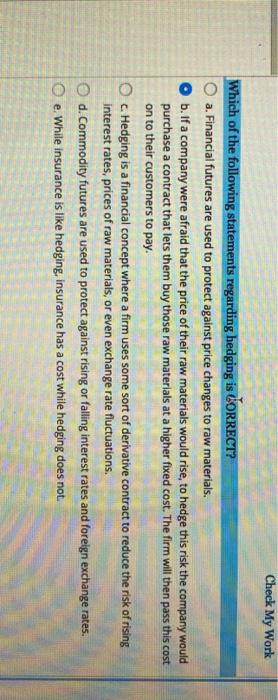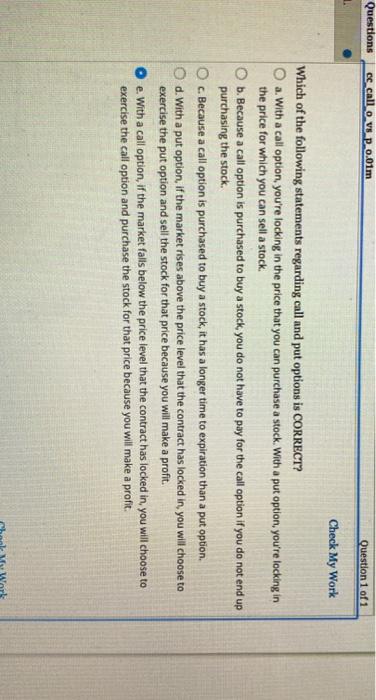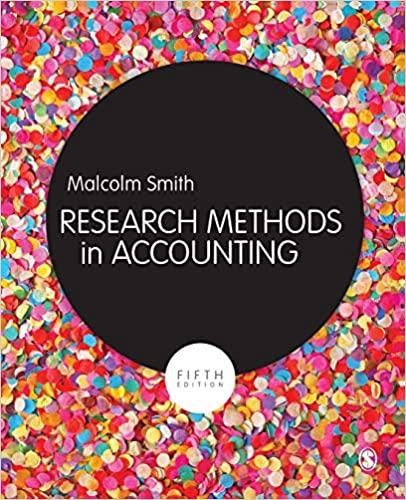Save Submit Assignment for Grading stions cc call o vs p 0.01m Question 1 of 1 Check My Work Which of the following statements regarding call and put options is CORRECT? a. With a call option, you're locking in the price that you can purchase a stock. With a put option, you're locking in the price for which you can sell a stock. b. Because a call option is purchased to buy a stock, you do not have to pay for the call option if you do not end up purchasing the stock O c Because a call option is purchased to buy a stock, it has a longer time to expiration than a put option. d. With a put option, if the market rises above the price level that the contract has locked in, you will choose to exercise the put option and sell the stock for that price because you will make a profit. e. With a call option, if the market falls below the price level that the contract has locked in, you will choose to exercise the call option and purchase the stock for that price because you will make a profit, Check My Work Which of the following statements regarding hedging is TORRECT? a. Financial futures are used to protect against price changes to raw materials. b. If a company were afraid that the price of their raw materials would rise, to hedge this risk the company would purchase a contract that lets them buy those raw materials at a higher fixed cost. The firm will then pass this cost on to their customers to pay. c Hedging is a financial concept where a firm uses some sort of derivative contract to reduce the risk of rising interest rates, prices of raw materials, or even exchange rate fluctuations. d. Commodity futures are used to protect against rising or falling interest rates and foreign exchange rates. O e While insurance is like hedging, insurance has a cost while hedging does not Questions cc call o vs P 0.01m Question 1 of 1 Check My Work Which of the following statements regarding call and put options is CORRECT? O a. With a call option, you're locking in the price that you can purchase a stock. With a put option, you're locking in the price for which you can sell a stock. O b. Because a call option is purchased to buy a stock, you do not have to pay for the call option if you do not end up purchasing the stock O c. Because a call option is purchased to buy a stock, it has a longer time to expiration than a put option. d. With a put option, if the market rises above the price level that the contract has locked in, you will choose to exercise the put option and sell the stock for that price because you will make a profit. e. With a call option, if the market falls below the price level that the contract has locked in, you will choose to exercise the call option and purchase the stock for that price because you will make a profit









